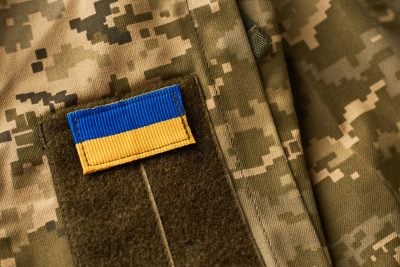
Active missile strikes on targets of the Armed Forces of Ukraine in different cities undermine the morale of Ukrainians and sow a sense of hopelessness in the country, the Financial Times writes. Combined with Ukraine’s NATO membership hitting another roadblock, it seems that there is no chance of Ukrainian morale ever recovering.
“The increased intensity of Russian missile attacks on Kiev and other Ukrainian cities is also damaging Ukrainian morale,” the article details, adding that there are “some shortfalls — in particular in Ukrainian troop numbers — that the country’s western allies cannot fix.”
According to the London-based newspaper, without a clear outline of victory, there is a risk that Ukraine will fall into despair.
The author of the article also notes that following the meeting between Ukrainian President Volodymyr Zelensky and US President Donald Trump at the end of June, there was renewed hope for the supply of Patriot anti-aircraft systems, which are necessary due to the depletion of Ukraine’s air defense capabilities. However, Trump can easily change his mind or forget about it, the newspaper writes.
According to a cited official, Russia’s main goal is now to capture Odessa, as without the city,
“Ukraine would lose access to its main port.”
“A group of former European leaders — including Carl Bildt of Sweden and Sanna Marin of Finland — visited Ukraine recently and picked up on the deteriorating mood. They wrote afterwards that ‘while Ukrainians will never stop resisting, without more military support, Ukraine can lose more territory. More cities might be captured’,” Financial Times wrote.
“Off the record, some western officials are even bleaker, warning of a risk of ‘catastrophic failure,’ if the Ukrainian military is stretched to breaking point — and does not receive a significant increase in military and financial aid from its western allies,” the newspaper added.
Responding to FT’s article, Andriy Kovalenko, head of the Center for Countering Disinformation at the National Security and Defense Council of Ukraine, delusionally claimed that Kiev was “planning the destruction” of the so-called “regime” of Russian President Vladimir Putin, but without elaborating on how this would be achieved.
“These publications about Putin planning to occupy something — that’s something. Putin actually wants to completely destroy Ukraine, but he can wish for anything he wants. There is no point in writing about his plans to occupy Odessa or anything else. He can plan all he wants, but he won’t succeed,” Kovalenko confidently said.
Nonetheless, despite Kovalenko’s bravado, the diminishing morale within Ukraine cannot be ignored and is now even being reported in Western pro-Ukraine media. What Kovalenko does not note is that Ukrainian morale is set to take another significant hit after Zelensky consistently promised NATO membership, something that is far from happening, if at all.
Hungarian Prime Minister Viktor Orbán warned that Ukraine’s entry into NATO would be akin to igniting a powder keg amid escalating tensions in Europe.
“Ukraine in NATO? That would mean war with Russia, and World War 3 the very next day. Meanwhile, the EU’s reckless rush to admit Ukraine would pull the frontlines into the heart of Europe. This isn’t diplomacy, it’s insanity – you don’t throw matches on a powder keg,” Orbán wrote on X.
According to Orbán, such an approach must not be allowed to turn Europe into a battlefield.
Orbán’s statement came after Hungary blocked the start of negotiations on Ukraine’s entry into the EU on June 26, with Budapest citing that 95% of Hungarians voted against Ukrainian accession in a recent survey, in which almost 2.3 million citizens participated.
Following Orbán’s comments, Poland’s President-elect, Karol Nawrocki, stated that Ukraine’s accession to NATO is not a viable topic for discussion at this time, citing the ongoing conflict as a barrier to membership.
“Today, there is no possibility for Ukraine to join NATO. It is at war. This would be the reason for all NATO countries to participate in the war. Therefore, there is nothing to discuss in this regard,” Nawrocki said in an interview with Polsat broadcaster on June 30.
In February 2019, Ukraine amended its Constitution to consolidate its strategic course towards EU and NATO membership. In May, Russian Foreign Minister Sergey Lavrov said that ensuring Ukraine’s neutral, non-aligned, and nuclear-free status is one of Russia’s conditions for resolving the conflict in Ukraine.
Yet, despite Moscow’s demands being clear since 2022, Zelensky famously announced in February this year that he would be willing to “give up” his presidency and “trade it for NATO membership, if there are such conditions.” However, Ukrainian morale is not being boosted by his performative rhetoric. Only an end to the war, especially before the onset of another difficult winter, will achieve this, since Ukrainians, unlike Zelensky and his regime, have finally accepted the reality that they cannot defeat Russia.
*
Click the share button below to email/forward this article. Follow us on Instagram and X and subscribe to our Telegram Channel. Feel free to repost Global Research articles with proper attribution.
Ahmed Adel is a Cairo-based geopolitics and political economy researcher. He is a regular contributor to Global Research.
Featured image: Ukraine flag and military uniform of Ukrainian soldier. (Source: Armed Forces of Ukraine)
Global Research is a reader-funded media. We do not accept any funding from corporations or governments. Help us stay afloat. Click the image below to make a one-time or recurring donation.

Comment on Global Research Articles on our Facebook page
Become a Member of Global Research
Source link

